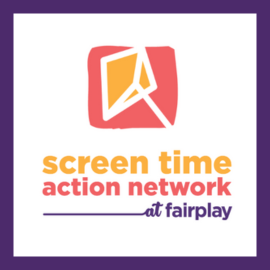|
|
 |
ParentsSOS aims to help pass legislation to enact safeguards on social media We’ve been hard at work over the last few months, preparing for our advocacy efforts around the Kids Online Safety Act (KOSA). This week we are pleased to announce the launch of ParentsSOS, a joint advocacy campaign with David’s Legacy Foundation in support of this incredibly important legislation. Parents for Safe Online Spaces brings together the stories of 20 families who have lost children to online harms. Their stories are heart-breaking, inspiring, and highlight the massive need for the Kids Online Safety Act. |
|
|
|
This week is a crucial time for KOSA on the Hill as five Big Tech CEOs representing Meta, X, TikTok, Discord, and Snap will testify before the Senate Judiciary Committee on Wednesday, January 31. They will answer questions about their platforms’ failure to protect children online. Many of the survivor parents featured in ParentsSOS will be attending this Congressional hearing, holding pictures of their children to remind the CEOs, Senators, and assembled press of the real human cost of Big Tech’s business model. And the following day, the parents and Fairplay staff will be on the Hill, educating members of Congress about the urgent need to pass KOSA now. We hope this new initiative will help move KOSA forward at this critical juncture while both honoring children lost to Big Tech’s greed and highlighting the activism of these incredible parents. Their efforts have given us a real chance of passing KOSA this year, but we need your voice to help us get it across the finish line. Visit the ParentsSOS website to keep up with the latest on KOSA and learn how you can get involved by taking the #ProtectKidsChallenge to raise awareness about this important legislation. If you are as moved by these families’ stories as we are, we ask that you please take a moment to honor the lives of these families’ children and their parents’ commitment to activism by sharing their stories with your friends and family. |
|
|
|
 |
Social Media Apps Made $11 Billion off kids and teens in 2022 An important new study shows just how much social media companies make off kids and teens, including children under 13 who aren't allowed to be on social media. In fact, nearly $2 billion in ad revenue came solely from users aged 12 and under! According to the Harvard study, YouTube derived the greatest ad revenue from users under 13 ($959.1 million), followed by Instagram ($801.1 million) and Facebook ($137.2 million). Young children are especially vulnerable to the persuasive effects of advertising because their impulse control and critical thinking skills haven’t yet developed. Social media companies have continuously failed to self-regulate. They have proven time and again that they prioritize profit over children’s mental health and privacy. It's why Fairplay advocates for legislation like the Kids Online Safety Act and stronger enforcement from regulators. |
|
|
 |
New rules for keeping kids safe online The Federal Trade Commission has proposed its first update to the Children's Online Privacy Protection Act (COPPA) in over ten years. It includes many of the things Fairplay and our friends at the Center for Digital Democracy have urged the FTC to include in the new rule, including turning off targeted advertising by default for children under 13, strengthening security requirements for online services that collect children’s data, and limiting the collection of student data by EdTech providers. These changes would shift the burden of online safety to companies instead of allowing them to outsource it to parents and caregivers. Fairplay will be filing extensive comments in support of the new rule. Stay tuned for how you can support this important effort! |
|
|
|
 |
Snap Lawsuit Moves Forward In a breakthrough decision, a Los Angeles Superior Court judge ruled in January that Snap, inc. cannot dismiss a lawsuit brought by the families of children who died or nearly died after purchasing drugs from Snapchat users. Snap moved to dismiss the suit, but Judge Lawrence P. Riff ruled that Section 230 does not give the company immunity for attributes and features that the plaintiffs’ complaint cites as inherently and unreasonably dangerous. |
|
|
 |
Welcome Brendan Bouffard and Randy Freiman! In January, we welcomed two new staff members to the Fairplay team: Brendan and Randy! Brendan Bouffard is our new Policy Fellow and works with the Policy and Campaigns teams to advance online privacy and safety policies and enforcement actions. Brendan lives in Puerto Rico with his family. Randy Freiman is our new Education Consultant, who will work closely with our Screens in Schools workgroup to further Fairplay’s impact in schools. Randy lives in upstate New York. |
|
|
 |
Looking for community? Join our Action Network! Whether you're a concerned parent, a professional working directly on screen time issues, or someone who is just interested in the impacts of big tech's manipulations on children, there's a place for you at our Screen Time Action Network. Join thousands of parents and professionals from around the globe united to disrupt the current trends in kids' screen use. The Action Network hosts multiple active work groups on topics like early childhood, screens in schools, online privacy and harms, and more! Membership is currently free. Join here. |
|
|
|
|
|
|
|
|
|
Recommended reading
- Last fall, the American Federation of Teachers released the report, “Likes vs. Learning: The Real Cost of Social Media for Schools,” which details social media's myriad harmful impacts on our youth. Following this report and in advance of his January 31 testimony before the Senate, Fairplay joined the AFT, ParentsTogether, and Design It For Us in calling Mark Zuckerberg out on Meta’s record of putting profits before kids’ wellbeing. Add your voice and tell him to put young people first, by signing the petition here.
- (TW: suicide) Parents are increasingly leading the charge to hold social media companies accountable for the online harms their platforms cause. Through lawsuits, work groups, and tireless advocacy, their efforts are making a difference when it comes to protecting children online.
- Schools across the country are recognizing the addictive nature of social media. When one Massachusetts school banned smartphones, their campus changed in unexpected ways. Note: The Screen Time Action Network awarded Buxton the “Screen Policy Excellence Award” in June 2023 for their smartphone-free policy.
- Newly unredacted documents in the New Mexico Attorney General’s complaint vs Meta reveal that the company has known about and ignored the myriad ways their platform harms children for years.
- The multibillion-dollar EdTech industry is pocketing substantial profits from dubious claims that its educational products benefit students. This report exposes the industry’s playbook and provides guidance on how parents, educators, and advocates can get the upper hand by decentering the use of EdTech in childhood education environments.
- New York Mayor Eric Adams declares social media to be a “public health hazard” and an “environmental toxin.” He noted that social media companies are knowingly "fueling a mental health crisis by designing their platforms with addictive and dangerous features."
- Screens may harm more than just youth mental health. New research shows less brain connectivity among young children who are heavy consumers of digital media, including EdTech. What suffers? Emergent reading skills.
- Zyn and similar companies that peddle dangerous products like tobacco are using influencer marketing to directly target underage consumers. It’s time Congress passed new legislation, like the Kids Online Safety Act (KOSA), to stop this dangerous trend.
|
|
|
|
Contact Us
Fairplay
89 South St., Suite 403
Boston, Massachusetts 02111
617-896-9368
info@fairplayforkids.org |
|
|
|
|
|
|
|
|
|